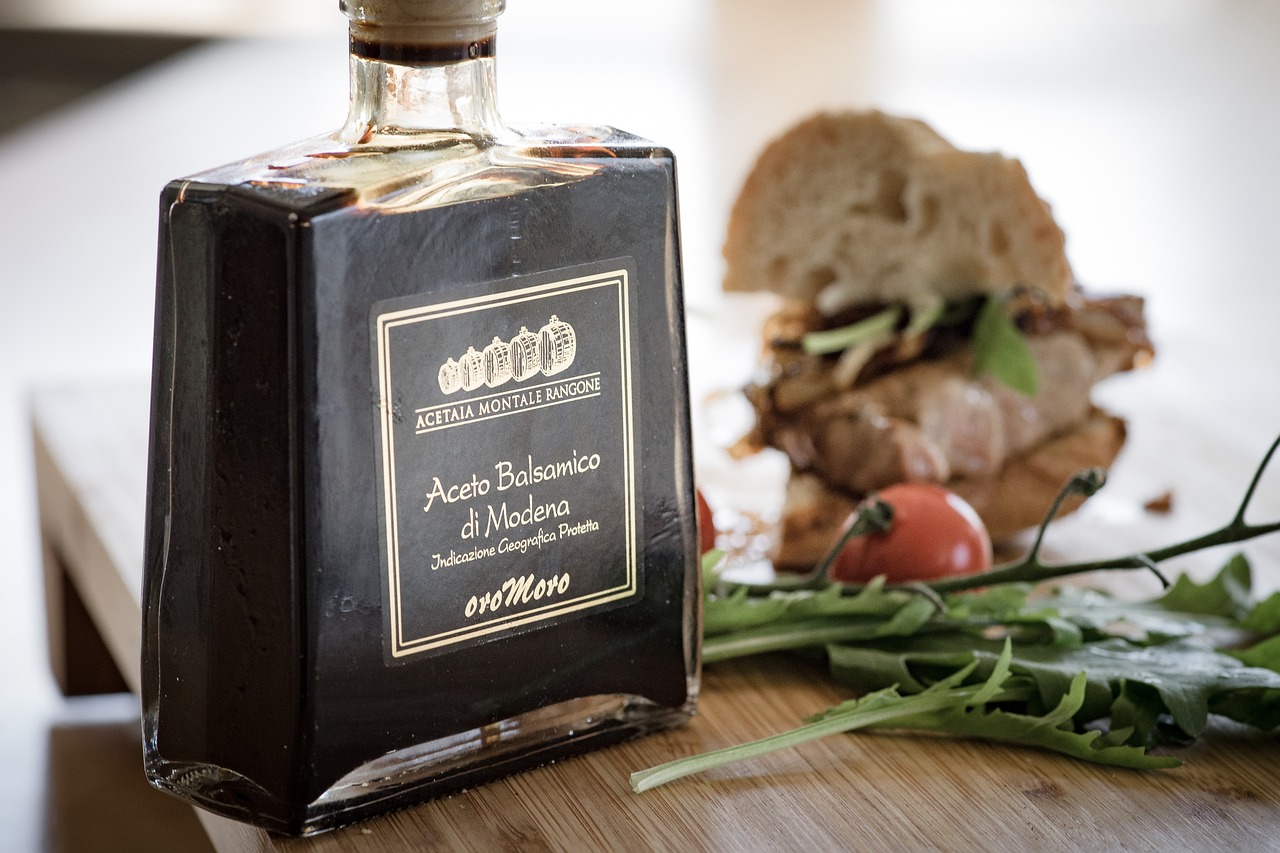How long is balsamic vinegar good for? People who don’t use balsamic vinegar frequently may be at a loss about storing it properly. Luckily, today’s blog will cover everything you need to know about storing this flavorful fermented seasoning properly at home after opening.
Will Balsamic Vinegar Go Bad If Not Refrigerated? Should Balsamic Vinegar Be Refrigerated?
Balsamic vinegar can be refrigerated if you want to. If you want to use them mainly to make salads and other leafy recipes, we recommend that you keep them in the fridge to keep them at a consistent temperature as your green leafy vegetables.
However, if you are using your balsamic vinegar for preparing glace (glaze), sauces, and other types of balsamic reductions, the go-to storage method would be to keep them in a cupboard or cabinet along with your other kinds of vinegar and bottled sauce products. The shelf life of balsamic vinegar that has already been opened on the average should be at least three to five years.
Can Balsamic Vinegar Be Stored at Room Temperature? Will balsamic vinegar go bad if not refrigerated?
Balsamic vinegar will not go wrong if you don’t refrigerate it, as long as you keep it in a cool place away from all kinds of light. Too much light and heat is bad news for balsamic vinegar, as these factors can significantly reduce the shelf life.
How Do You Store Balsamic Vinegar After Opening? How to store balsamic vinegar after opening?
Balsamic vinegar may be stored in a cabinet or shelf in the kitchen. Please keep it away from intense heat and natural sunlight or even artificial light. Balsamic vinegar reacts to light, so it is not a good idea to pour it into a clear mason jar or glass server without keeping its storage requirements.
When balsamic vinegar is overexposed to light, it begins to deteriorate, and it eventually goes bad. Balsamic vinegar that has gone bad will have a much harsher flavor that won’t go well with salads. The change in the flavor profile will make it impossible for you to create glazes and not from balsamic vinegar.
How long does balsamic vinegar last?
On average, balsamic vinegar can last anywhere from three years to a whopping ten years. Opened bottles will have a shorter lifespan than the closed ones. So if you happened to have more balsamic vinegar at home, or if someone gifts you with one, don’t open the bottle if you don’t need to use it. It may be tempting to open a bottle of balsamic vinegar and smell the aroma, but if your next use for it will be in three months, that’s a lot of time already for unsealed vinegar.
Choose to store your balsamic vinegar with your other seasonings and sauces in your pantry until you are truly ready to use them.
How Can You Tell If Balsamic Vinegar Has Gone Bad?
While balsamic vinegar has one of the most extended shelf lives among all organic food (with organic honey being the supreme leader of them all), balsamic vinegar does eventually degrade or ‘go bad.’ Balsamic vinegar that is still good to consume should have a rich, sweet, and tart flavor profile. If this is the flavor profile, then all is well and good, and you can continue consuming the vinegar as it is.
However, if the balsamic vinegar tastes murky and harsh, then it has probably spoiled. There is a fair chance that the bottle of vinegar will no longer be appropriate for cooking and eating anymore, so dispose of it and use a new bottle instead. Luckily, balsamic vinegar is not that expensive anymore, and you can buy a few bottles easily when you shop at Amazon or the brand stores online.
Balsamic vinegar can eventually spoil due to two things: light and heat. These are the two most significant factors that can affect the longevity of any balsamic vinegar. This is why it is unwise to purchase balsamic vinegar in a clear bottle. Balsamic has to be stored in amber or dark bottles.
Dark glass bottles can help prevent balsamic vinegar from interacting with light and heat. However, this doesn’t mean that you can expose balsamic vinegar to harsh light or place the bottle near the window where there’s a lot of sunlight. You still have to place the bottle away from light as much as possible. There is a limit as to how much light and heat balsamic vinegar can tolerate.
Storing your balsamic vinegar properly is essential to maintaining its quality. The best possible place for it should be dark or away from as much light as possible, the location should be dry, and it should also be cool. Temperate countries are generally calm, so the temperature requirement shouldn’t be a problem.
If you live where the temperature sizzles almost all year long, the best location for your balsamic vinegar is in the refrigerator or a high cabinet. Elevated cabinets are more relaxed, especially in the kitchen, and you wouldn’t have to worry about the increase in temperature in the kitchen when you are cooking.
Another important reminder when using balsamic vinegar is to seal the bottle tightly after using it. Don’t leave the bottle open, because this can easily cause contaminants to enter and spoil your vinegar.
How can vinegar ever spoil? There is a small chance that, indeed, persistent pathogens may cause vinegar spoilage. Still, you are right in thinking that the natural antibacterial properties of balsamic vinegar will take care of most of them. This is just a best practice that we should all remember to preserve our vinegar well.

